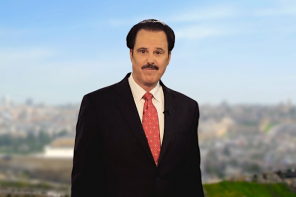The dining rooms of both the Senate and the House of Representatives have witnessed the making and breaking of many deals—some might even say that that’s where the real deal-making goes on. While similar wheeling and dealing can be found in parliaments throughout the world, Israeli political scientist Yoram Peri has noted that this is particularly true in the cafeteria of the Knesset, Israel’s parliament, which has:
the atmosphere of a social club. Knesset members, journalists, senior officials and others from the political class mingle, move from table to table, and join in conversations that go on all day.
Corpulence=Corruption
In Israel’s parliament there are a number of eating venues—some serving dairy food (chalavi) and some serving meat dishes (besari). According to Halachah (Rabbinic law) eating food in which milk and meat are mixed is forbidden. A kosher meal has to be either a “meat meal” or a “dairy meal.” Thus is the great American favorite, the cheeseburger, forbidden under the kosher laws, the rules of Kashrut. In Orthodox homes, where the Kashrut laws are rigorously followed, there are separate utensils for meat and milk cooking and separate dishes and silverware for meat and milk meals. In kosher restaurants, and in many Jewish institutional settings, a kitchen will be either “milk” or “meat”—not both.
Because of the delicate relationship between synagogue and state, all Israeli government institutions serve kosher food, including both government offices and the vast apparatus of the Israeli Army. And this despite the fact that most Israelis are not themselves “strictly kosher.” Without Kashrut supervision most restaurants and hotels in Israel would not survive—they wouldn’t get enough regular business. This system controls the work week of the restaurant and hotel employees: on the Sabbath and holidays no “forbidden work” can be performed in preparation of food.
(There are non-Kosher restaurants in Israel, but no non-Kosher food in the Knesset building unless someone sneaks it in!)
The Knesset has three cafeterias: one serving only “milk” foods and two serving “meat” foods. In late June, one of the two meat cafeterias was shut down when a diner reported finding a cockroach on a plate of rice. The closure was not done by the Israel health authorities, but rather, by the kosher supervisor of the Jerusalem Rabbinate, Rabbi Binyamin Adler.
Israeli newspaper editors and bloggers had a field day composing headlines for this story. Alliteration was all the rage: “Cooked Cockroach Closes Knesset Cafeteria” was my favorite, subtitled: Kosher conundrum caused when creature cooked and served to Knesset member.
Among the 120 members of the Israeli Parliament are some well-known gourmands, more than a few of whom are grossly overweight, which is read by Israeli voters as a sign of corruption (“The lawmakers are getting fat while some of the citizenry goes hungry,” said one irate voter). While Israel’s legislators are seldom involved in sexual scandal (a major exception being the previous president, Moshe Katsav, who is under indictment for rape), they’re frequently embroiled in corruption scandals over money and influence—peddling and corpulence has thus become equated with corruption. For that reason the Israeli media, and the public, had a field day with the cockroach incident.
Five Reasons Why Cockroaches are Unkosher
Long before the “cockroach attack,” the Knesset cafeterias were in deep trouble. In October of last year the cafeteria owners announced that one-third of the Knesset’s members—40 MKs—were deeply in debt to the cafeteria owners, as they had allowed MKs to maintain charge accounts. They owed a total of 400,000 shekels ($100,000), and it had gotten so bad for twenty MKs that they’d already been refused service due to their large outstanding balances.
Echoing the sentiments of many of their fellow citizens, the cafeteria owners, Yaron Menashe and Oshik Ben Shitrit, expressed their dismay about the ethical standards of their parliamentary representatives: “The payment ethic of private citizens who eat at the cafeteria is of a higher standard than some of the MKs.” As luck (or fate) would have it, the cockroach in the rice appeared on the dinner plate of the secretary of the Ultra-Orthodox Shas Party. Sitting with him at the cafeteria table were two Knesset members from Shas. MK Yitzhak Vaknin told the press:
I sat with this person who had a cockroach on his plate. He pointed it out to us. I saw the cockroach—it was no longer alive, it was cooked. This is very bad. There is a halachic issue here. This is an issue of insects, vermin, and unclean creatures. I called the kosher supervisors to come and see.
Insects, vermin, etc. are treyf (unkosher) according to biblical injunction as codified in Rabbinic Law. When Rabbi Adler (the Kashrut Supervisor of the Jerusalem Rabbinate) told a journalist that a person eating a cockroach was violating five different laws, students of halacha around the world struggled to identify them. It took just a day for an American Orthodox Jewish Web site, Vos Iz Neias, to offer “a grand prize to the first reader who is able to correctly identify all five issurim (prohibitions) associated with eating a cockroach in the Knesset cafeteria.”
A day after that the Web site had posted—in Hebrew, Aramaic and English translations—the biblical and Talmudic citations that forbid the consumption of bugs. For the Orthodox community, the prohibition is not as arcane as it might seem. In the past few decades Ultra-Orthodox communities have encouraged their members to check all fresh vegetables, especially lettuce and broccoli, for the presence of bugs.
Rethinking “Kosher”
While the term kosher has a wide range of usage in the United States (ranging from “kosher style” to “strictly kosher”), use of the term is much more specific and controlled in Israel. In an Israeli restaurant, kosher means that the food is prepared under official rabbinic supervision. The supervisor or mashgiach (who works under the supervision of the Chief Rabbinate) can withdraw the certificate of Kashrut for reasons not directly connected to the preparation of food. Among the more bizarre of these acts of enforcement was when a restaurant in Tel Aviv had its Kashrut certification withdrawn because it offered belly-dancing among its entertainment options.
Only a minority of Israeli citizens, and Israeli parliamentarians, are Orthodox Jews. But because of the complex history of Synagogue–State relations in Israel, the Orthodox rabbinate controls many areas of life; with the Kashrut laws being only the most obvious. In fact, the most contentious area is not food, but that of ‘personal status’ (laws of marriage and divorce) controlled by the Israeli Rabbinate whose functionaries are paid with taxpayer funds. The Rabbis of other Jewish denominations—Conservative, Reform, Reconstructionist, Jewish Renewal—are not recognized. They have no legal authority, cannot perform weddings, officiate at funerals, or certify a restaurant as kosher.
At present there are a small number of Conservative and Reform Rabbis in Israel, but they receive no funds or recognition from the state. What they do receive is a heavy dose of contempt from the official Rabbinate. When non-Orthodox Rabbis are referred to in Orthodox publications their title is given in transliterated form, the English word “Rabbi,” not the Hebrew word “Rav.” Women Rabbis come in for special opprobrium as the Orthodox Rabbinate (much like the Catholic Church) does not recognize the possibility of women’s ordination. Religion scholar James Diamond has noted that, “a significant number of Israeli Jews are secular not only in lifestyle but in worldview.” Diamond cites opinion polls revealing that:
a majority of Israelis would like to see sweeping secular reforms implemented including civil marriage and public transportation and shopping malls opening on Shabbat… 63% percent of Israelis polled in August, 2001 by Dahaf Research Institute support equal treatment for all streams of Judaism.
For those who have been following the Israeli parliament’s recent deliberations, there are more disturbing news developments than the appearance of a cooked cockroach (as unwelcome as that might be). “Israel Beiteinu,” the party led by right-wing Foreign Minister Avigdor Lieberman, proposed a law that would limit the privileges of Israel citizenship to those who take an oath affirming their loyalty to the Jewish character of the state. This would call into question the status of the 20% of Israeli citizens who are Arabs (which includes Druze, Christians, and Bedouins, as well as Muslims). A week after the “cockroach in the Knesset” incident, columnist Yedidia Stern noted in Ha’aretz that “voices hoping to use the Knesset’s powers to legislate bizarre, racist laws… are gaining strength. …The national minorities’ struggle for equality and civil rights is a matter that every Jew and democrat should support.”
For this observer of Israeli culture, the most entertaining items were the reader responses on the Israeli newspaper Web sites. On the Yediot Aharanot Web site, some readers suggested that the roach was the vanguard of a terror attack on the parliament. Others used the incident to question the patriotism of the Shas Knesset member, noting that had they served in the IDF they would not be shocked by roaches in the kitchen. Another came to the MK’s defense, stating that all of the Shas MKs had served in the military.
In the reporting on the incident, the remarkable diversity of Israel’s print and electronic media was on display. On the “morning after” the incident, Arutz Sheva (Channel 7), associated with the Religious Zionist and Settler Movements, interviewed Rabbi Adler about the halachic basis of his decision to close and clean up the Knesset’s meat cafeteria. He explained that a cockroach is a being that is inherently defiling, “thus quality is never diluted, even in the proportion of one to a thousand. Therefore if cockroaches are in the food, it is treyf. This is what I decided and that is why the Kashrut certification was revoked.” Rabbi Adler concluded his remarks with a call for better hygiene: “In the summer there are more roaches and it is important to maintain hygienic standards. Now the Knesset cafeteria is closed. They will spray and clean up—and then we will go and make sure that everything is okay.”
After the Postville, Iowa scandal last May, when federal immigration officials raided the nation’s largest kosher plant, Agriprocessors, Inc. was forced to reevaluate its values and standards in order to retain its kosher certification. In the raid hundreds of undocumented illegal workers were arrested and cruel animal-handling practices were exposed. As a direct result, “ethically kosher” certification is now offered by Conservative and Modern Orthodox Jews, a certification that includes awareness of fair labor practices and avoidance of undue cruelty to animals.
Thus among many American Jews there is an ongoing reevaluation of the very meaning of “kosher food” led by Rabbis of the Conservative Movement who were pioneers in this endeavor. Conservative Rabbi Morris Allen organized the Heksher Tzedek movement, which certifies that the practices of kosher food businesses are ethically conducted—including the ethical treatment of animals. Sadly, no such reevaluation is evident within Israel.




